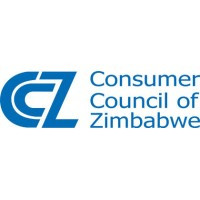
THE Consumer Council of Zimbabwe (CCZ) has called for stronger enforcement of the Consignment-Based Conformity Assessment (CBCA) programme to protect consumers from substandard and mispriced goods.
This comes as the government continues to refine the CBCA framework following the gazetting of Statutory Instrument 35 of 2024, which broadened the programme’s legal and operational scope.
The CBCA, introduced in 2015, is a pre-shipment verification system that requires selected goods to be inspected and certified in the country of export before entry into Zimbabwe, a move aimed at blocking substandard, counterfeit or undervalued imports.
“We need to scale up public awareness, introduce QR (Quick Response) codes and USSD (Unstructured Supplementary Service Data) platforms for real-time product verification, and address weak enforcement in informal markets where non-compliant goods continue to thrive,” CCZ’s policy, research and advocacy director Patience Chikwiriro said at a recent stakeholders consultation workshop.
The workshop was hosted by the Ministry of Industry and Commerce.
Chikwiriro added that the CBCA programme remained largely invisible to consumers and was not yet yielding its full potential due to implementation gaps.
“Compliance costs are being pushed onto the consumer, labelling is inadequate, and there is little visibility on how certified products are monitored after entering the market,” she noted.
To help close the gap, the CCZ revealed it is rolling out a ‘CCZ Verified’ digital platform expected within 90 days that will allow consumers to scan products, confirm certification, lodge complaints, and access safety information in real time.
- Mthuli Ncube abandons struggling consumers
- Government moves to cushion pensioners
- Village Rhapsody: Zanu PF must commit to peaceful transition in 2023
- Could genomics bring answers to the Siyachitema Covid-19 bloodbath?
Keep Reading
The platform will complement CBCA mechanisms as well as improve traceability and accountability in the retail space.
Chikwiriro said the CBCA programme was a key enforcement tool under the Consumer Protection Act, aligning with several sections that govern product safety, fair value, and redress.
“Importers must do due diligence before bringing goods into Zimbabwe. The CBCA Programme enforces that obligation and strengthens consumers’ rights to safety and value,” she said.
During the workshop, CCZ stressed the need for clearly labelled goods, including instructions in local languages, and the establishment of a national post-market feedback portal to track and resolve product complaints.
The CCZ expressed concern over how CBCA-related inspection costs are eventually transferred to the consumer through higher retail prices.
It further noted that informal traders who often bypass certification processes continue to sell uncertified products at lower prices, undermining both consumer safety and fair competition.
“Enforcement appears focused on formal importers, while informal traders are largely unregulated. This undermines the programme’s credibility and puts compliant businesses at a disadvantage,” Chikwiriro said.
She said CCZ was committed to working with the Ministry of Industry and Commerce to bolster the CBCA programme through consumer education, digital innovation, and enhanced monitoring.
As part of its new mandate under Section 33 of the Consumer Protection Act, CCZ will now handle dispute resolution and arbitration related to consumer complaints, positioning itself as a frontline partner in addressing issues tied to imported products.
“We are open to collaborating on post-market surveillance, digital traceability and feedback loops. Consumers deserve visibility into what they are buying and recourse when things go wrong,” Chikwiriro said.
The council also urged the ministry and CBCA authorities to work with its technical departments, including the Consumer Council Digital Feedback Interface, to monitor labelling compliance and coordinate product recall alerts.










